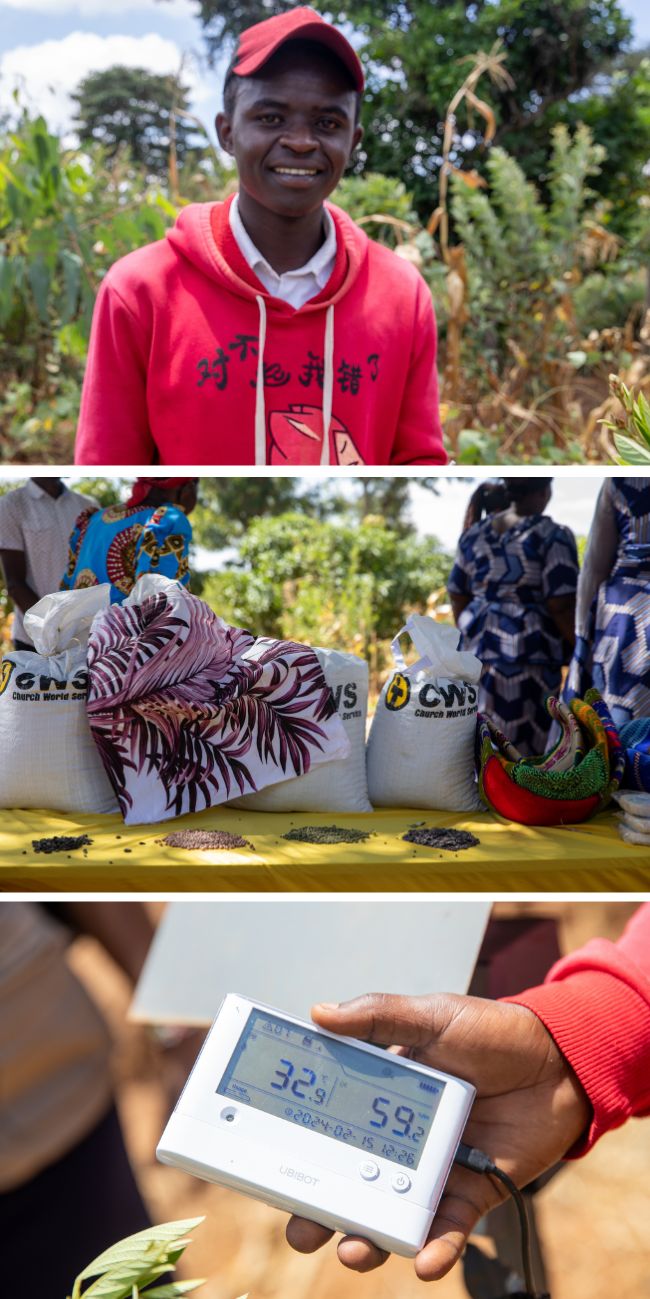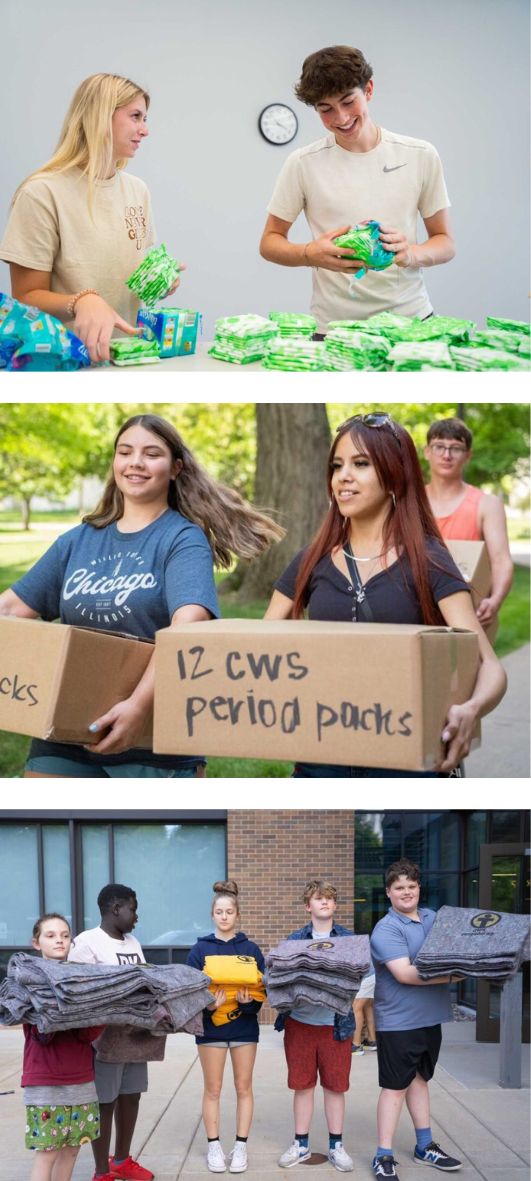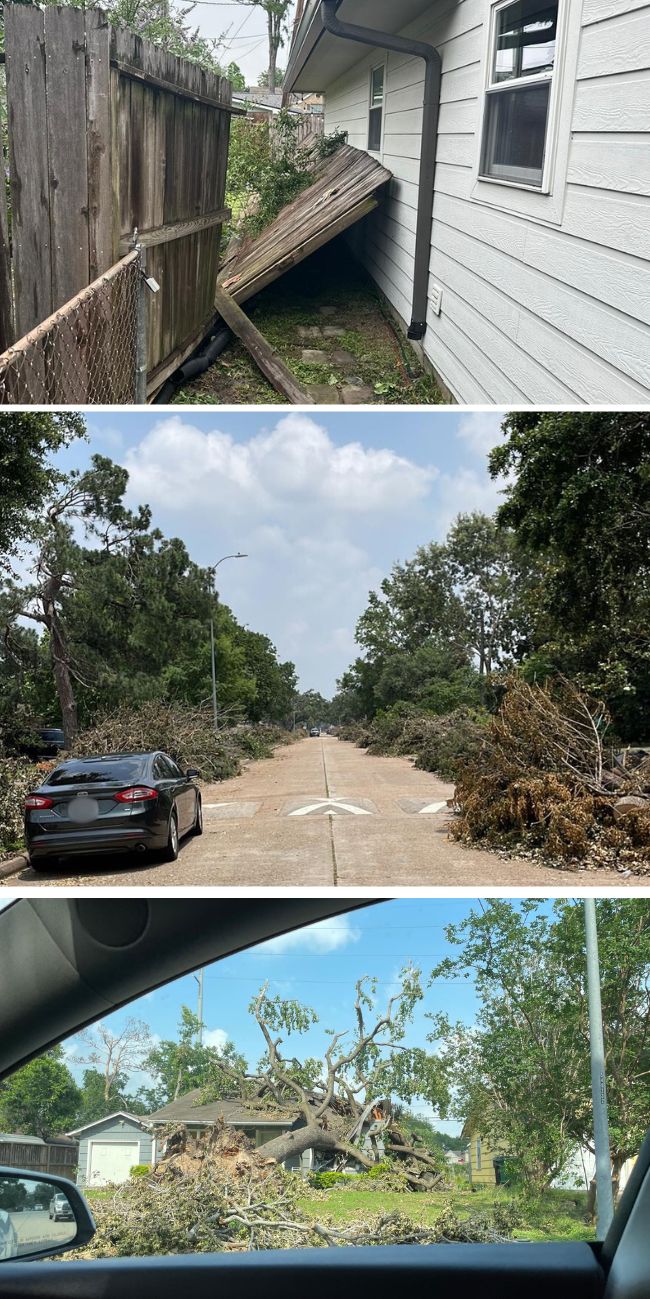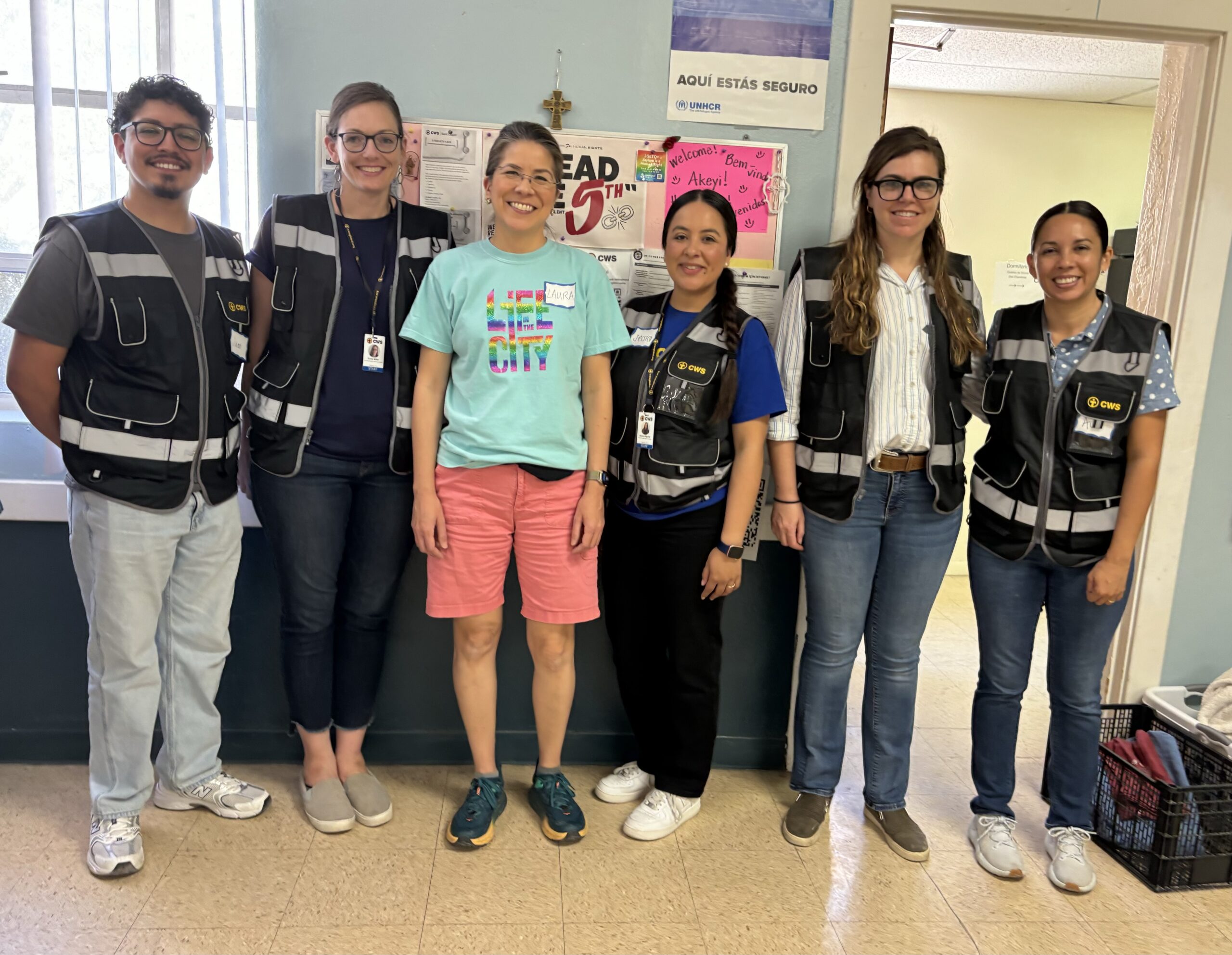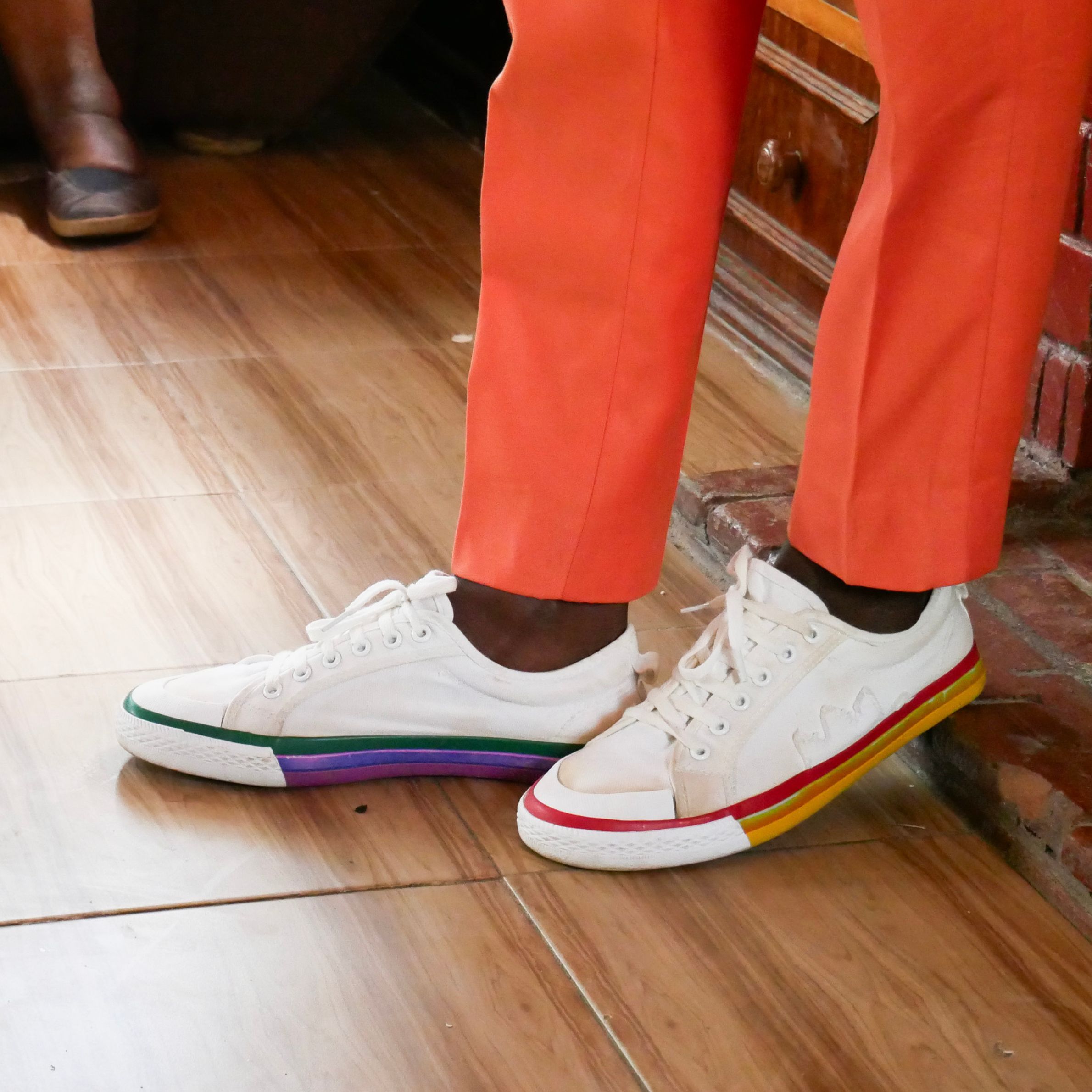On July 7, 2024, Hurricane Beryl struck the Texas coast as a Category 1 hurricane, bringing heavy rains, high winds and widespread power outages that left over two million people in the dark. Flood warnings were posted along the coast, and high winds and water caused widespread damage and debris for millions. In the immediate aftermath of the storm, CWS …
Stories of Change

David and his little sister at Anastasis
Together Again in a New Home
Before the war in Ukraine, 13-year-old David was like many pre-teens his age. He attended a good school, had friends and dreamed of becoming a professional footballer. His family was proud and encouraged him to pursue his dreams. Little did they know that life would change drastically, creating new challenges for the close-knit family.
When the war broke out, David insisted on staying in his hometown of Khmilnytskyi to finish the school year, even as his family decided to seek refuge in Moldova. With heavy hearts, his parents decided that they would respect David’s wishes, especially because he had the safe option of staying behind under the guardianship of his grandmother, who also wanted to stay. His mother, Maria, recalls the agonizing decision, “He promised to join us in summer. I felt so helpless, constantly watching the news and worried sick about my child in danger.”
In April 2024, after much discussion, Maria finally convinced David to come to Moldova. The family found shelter in Bălți and Maria, knowing her son needed friends and a place to feel at home, brought him to the *Anastasis Educational Center.
Initially, David was withdrawn and sad, and he visited the center only to connect with his friends in Ukraine through social media. He was distant and spoke very little with the other children. However, with time and support from the center’s psychologist, David began to open up and feel safe. He started participating in the center’s activities and soon made his first friend, Andrei, a local boy from Bălți. David enthusiastically shared, “We make a great team. We especially enjoy the culinary clubs and volunteer activities.”
In a relatively short time, David made new friends and began to feel like himself again. His mother tearfully expressed her gratitude, sharing that “at Anastasis, David discovered a new world that partially replaced the friends and home he left in Ukraine. The educators here have worked wonders. We’re so grateful for all the help we’ve received.”
David has decided to stay in Bălți with his family until the war ends. This past June, his younger sister also started attending the Anastasis Center and David has played a crucial role in helping her to adapt and make new friends like he did.
Now David, his sister and their mother regularly visit Anastasis and actively participate in all the center’s activities. Maria shared that without the support and care of the Anastasis team, she believes they would have struggled immensely. “Thank you for everything. I know it’s thanks to you that my son has managed to adapt and get through this difficult situation much more easily. I wish for all children to grow up safely alongside their parents.”
*The Anastasis Educational Center is run by our local partner, Diaconia, and aims to help Ukrainian refugees heal and rebuild their lives. At the center, program participants can receive psychological support, attend vocational classes, partake in fun activities and access computers to attend online school.
This story is possible thanks to CWS’ membership in ACT Alliance, a global coalition of churches and agencies engaged in development, humanitarian assistance and advocacy. It is also supported by the generosity of UMCOR. You can learn more about the work we are doing in Moldova to support Ukrainian refugees by clicking here.

